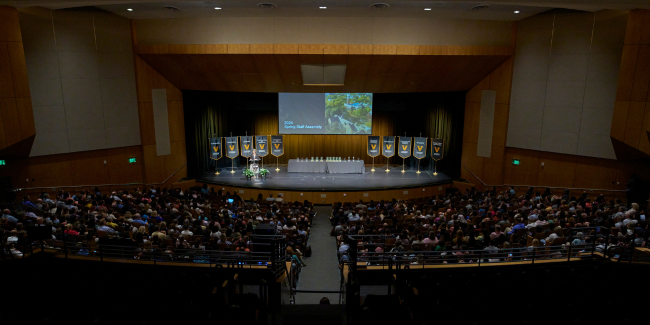
Audrey Arner, a first-year Ph.D. student, recently earned a pilot research grant from Vanderbilt’s Evolutionary Studies Initiative to study the evolutionary mismatch hypothesis in Malaysia. The basis of the research seeks to understand how genetic characteristics that were beneficial to communities in the past could be harmful in a modern environment.
Arner, who studies in Assistant Professor of Biological Science Amanda Lea’s lab, will work with other anthropologists and physicians through the Orang Asli Health and Lifeways Project to collect blood samples from a subset of the indigenous Malaysian people known as the Semang. Arner will also help train Semang field assistants in molecular techniques.
According to Arner, “the Semang are a hunter-gatherer population that is transitioning to a more urbanized lifestyle such that individuals of the same genetic background live in both traditional and urban settings.”
The samples collected will be used to generate whole genome sequencing data where she can identify areas of the genome under selection. Arner will then identify whether the position of a gene or mutation on a chromosome have different phenotypic effects in traditional versus urban settings.
“Audrey’s new study will combine anthropological field work, cutting edge genomic technologies, and evolutionary genetic analyses to address an important hypothesis in biological anthropology known as the evolutionary mismatch hypothesis,” Lea said. “Through this project, Audrey will gain valuable experience by working closely and collaboratively with participant communities, researchers, and clinicians in Malaysia. I look forward to the work Audrey will conduct as part of this new grant, and the directions and opportunities it will open up for her moving forward.”
Through this collaboration, Arner wants to build relationships with the Semang and make results of the study available to the community.
“I want to build connections and allow my research to be a mutually beneficial partnership—while also doing functional genomics research to understand how the interaction of adaptation and lifestyle change impacts health,” she explained. “Dr. Lea’s lab was perfect for that. Vanderbilt also seemed to have a lot of resources available, especially the Evolutionary Studies group.”
She will also use data generated with this grant to train undergraduate students in methods of biological anthropology and evolutionary genomics. These students will be well prepared for lab-based or bioinformatic careers in industry or academia. Arner also hopes to have undergraduate trainees pursue their own questions and encourage work in the lab.
Results from this work would serve as a proof of concept and preliminary data allowing Arner to apply for larger research grants, such as the National Science Foundation’s Biological Anthropology Doctoral Dissertation Improvement Grant and the Leakey Foundation’s Graduate Student Research Grant.


